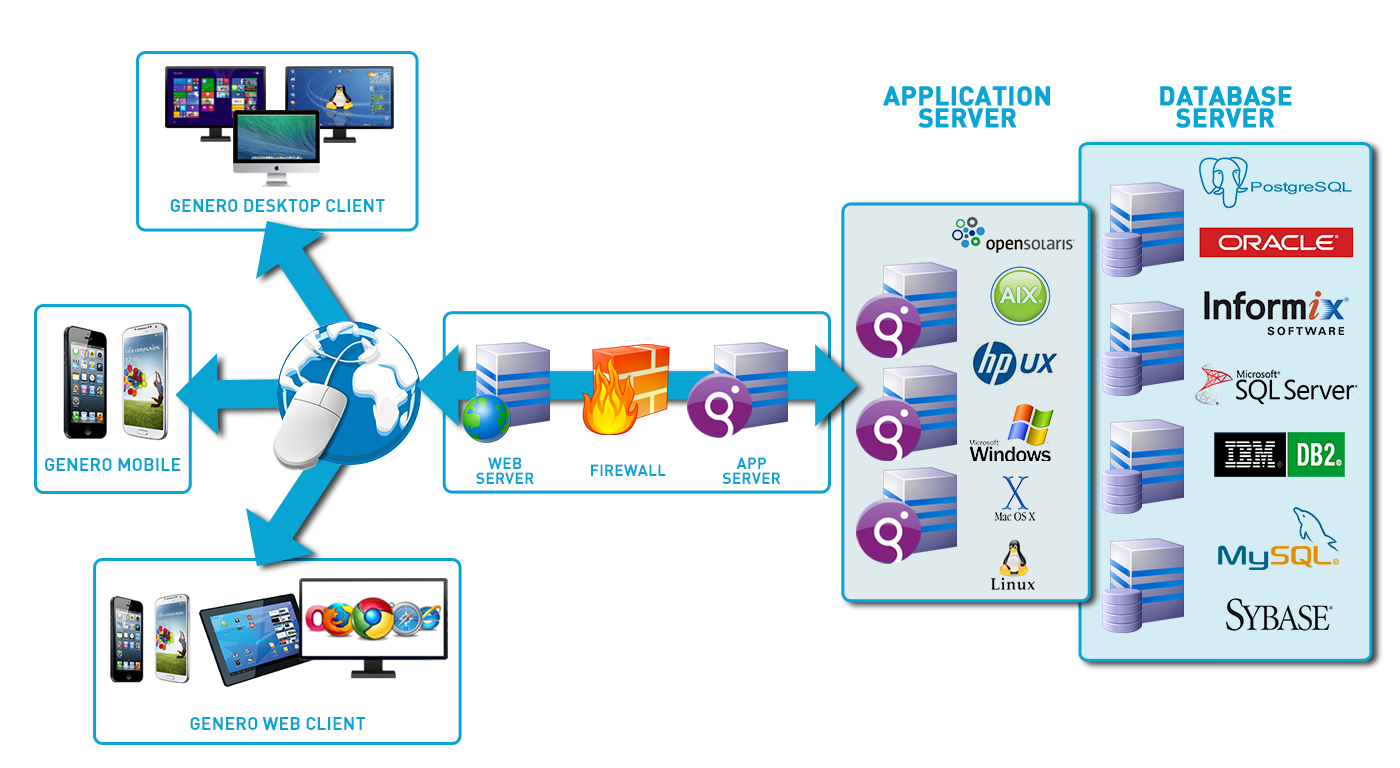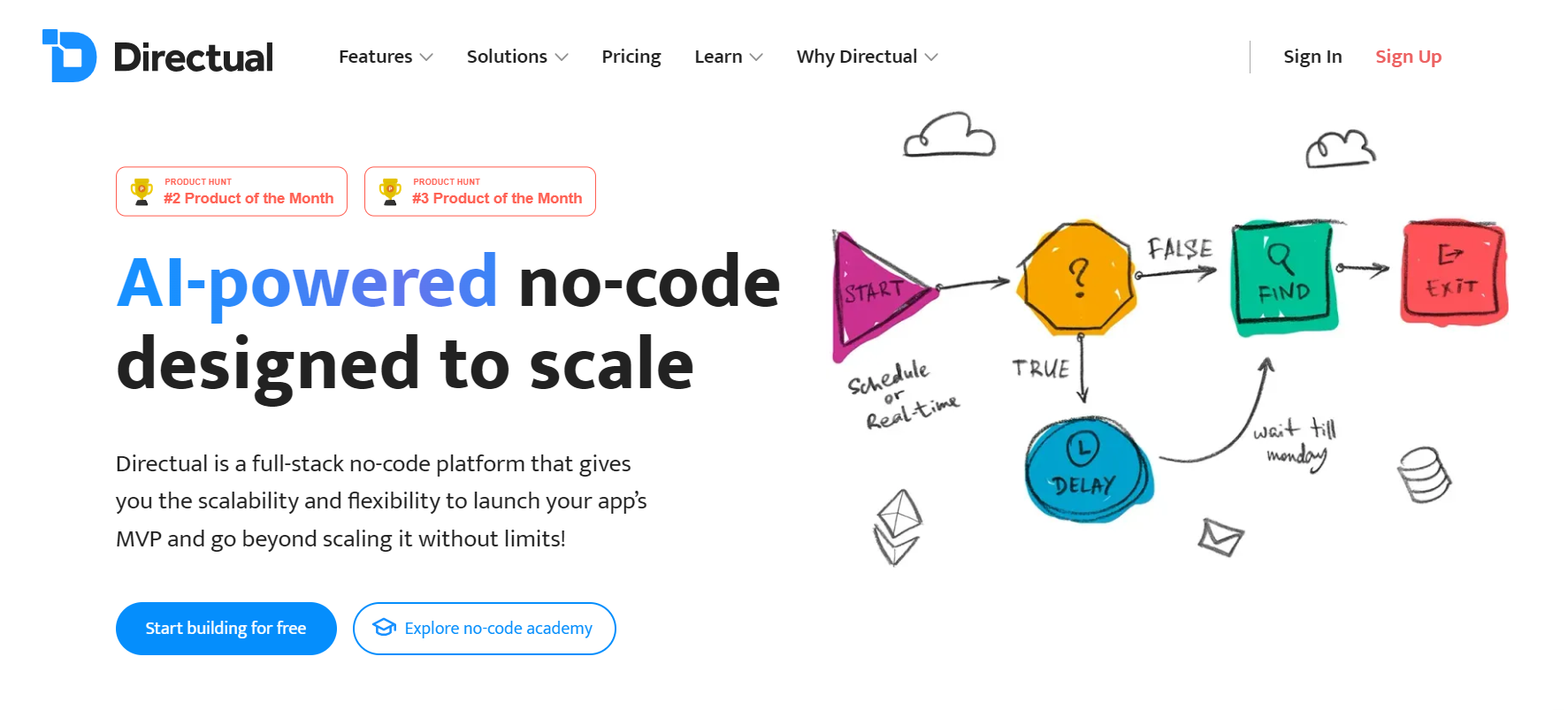No-Code Open System Database Development: Empowering Companies to Build Faster
Wiki Article
Discovering the Advantages of Scalable Databases That Call For No Coding Abilities for Reliable Data Management Solutions
The development of scalable data sources that eliminate the need for coding skills presents a transformative chance for companies seeking efficient information administration services. As we think about the effects of such advancements, it ends up being critical to analyze exactly how they can reshape the landscape of data monitoring and drive sustainable development in an affordable environment.Improved Availability for Customers
Boosted ease of access for users is an essential facet of scalable databases, ensuring that information management systems are user-friendly and intuitive. In an age where data-driven decisions are paramount, availability permits a larger series of individuals, including those without extensive technological expertise, to engage with database systems successfully. This democratization of data accessibility assists in enhanced cooperation throughout divisions, encouraging employees to extract understandings and make educated decisions.User-friendly user interfaces, such as aesthetic data and drag-and-drop features representation, simplify complicated information communications. These improvements lower the understanding contour connected with standard data source monitoring, making it possible for customers to concentrate on leveraging information instead than grappling with technological intricacies. Scalable databases typically incorporate real-time analytics and adjustable dashboards, supplying individuals with prompt insights customized to their details needs.

Cost-Effectiveness and Resource Financial Savings
Efficient data monitoring not only depends upon access however likewise on cost-effectiveness and source savings. Scalable databases created for individuals with no coding abilities substantially reduce financial worries commonly connected with conventional data source monitoring systems. By eliminating the requirement for specialized programming expertise, organizations can designate their sources more efficiently, focusing funds on core company activities as opposed to comprehensive training or employing proficient workers.Furthermore, these data sources usually make use of cloud-based services, which better minimize expenses connected to equipment and maintenance. Organizations can scale their database remedies according to their needs, preventing the expenditures sustained from over-provisioning sources. This adaptability suggests organizations can adjust to changing needs without sustaining unnecessary costs, resulting in substantial long-term cost savings.
Furthermore, straightforward user interfaces improve information entry and monitoring processes, decreasing the moment invested on administrative tasks. This performance converts right into labor cost savings, permitting teams to concentrate on critical campaigns rather than routine maintenance. Overall, adopting scalable databases that require no coding skills promotes a more economical approach to data monitoring, allowing organizations to maximize their sources while maintaining high levels of operational efficiency.
Improved Cooperation Throughout Teams

Moreover, scalable databases help with smooth interaction amongst staff member. With straightforward interfaces that call for no coding skills, employees can quickly create, modify, and share reports or dashboards tailored to their specific requirements. This democratization of information empowers non-technical users to contribute insights, improving the joint environment.
Furthermore, these databases support concurrent gain access to, enabling numerous users to deal with the exact same dataset at the same time. This feature boosts performance, as groups can engage in joint link data evaluation without the threat of variation control concerns. The capacity to leave notes or remarks straight within the data source even more promotes discussion and clarifies information analyses.
Streamlined Data Administration Processes
In today's data-driven setting, companies identify the need of streamlined data administration refines to maximize effectiveness and accuracy. By leveraging scalable databases that need no coding abilities, organizations can streamline their data handling and reduce the intricacies commonly related to traditional database systems. This availability equips non-technical users to engage straight with information, helping with quicker decision-making and minimizing reliance on specialized IT personnel.Streamlined information administration processes enhance workflow by automating regular jobs such as data access, validation, and coverage. Automated data assimilation see this site makes sure that info from different resources is aggregated perfectly, eliminating silos and promoting a combined sight of essential business metrics (no-code). User-friendly user interfaces enable employees to control information conveniently, enabling them to create understandings that drive calculated initiatives without the requirement for comprehensive training.
This effectiveness not just speeds up functional processes yet additionally lessens the potential for human mistake, guaranteeing that information continues to be dependable and precise. Ultimately, streamlined data management procedures through scalable databases cause improved efficiency, permitting organizations to concentrate on core activities while making sure that their information administration techniques are reliable and reliable.
Scalability for Expanding Companies

For broadening ventures, the capability to scale up or down is essential. A scalable data source can handle an increase of information generated from brand-new clients, products, or services, making certain that business procedures stay nonstop. Additionally, these data sources provide the ability to take care of peak tons successfully, which is important during periods of rapid growth or seasonal spikes.
Additionally, many scalable database solutions are created with user-friendly interfaces that need no coding skills, equipping non-technical personnel to take care of data efficiently (no-code). This democratization of information administration allows organizations to assign sources strategically and reduce dependence on specialized IT workers
Eventually, adopting a scalable database not just enhances functional efficiency however additionally fosters a setting where businesses can advance and introduce without the restrictions of standard database systems. This flexibility placements organizations for long-term success in today's competitive landscape.
Final Thought
To conclude, scalable data sources that call for no coding abilities offer considerable advantages for effective data monitoring. These systems improve ease of access for non-technical customers, decrease operational costs, and advertise partnership throughout teams. By enhancing data management processes and providing scalability for expanding organizations, such remedies enable companies to adjust to altering demands try this out efficiently. Inevitably, the fostering of these user-friendly databases cultivates advancement and positions businesses for long-term success in a vibrant atmosphere.Enhanced availability for customers is a vital element of scalable databases, making sure that information administration systems are instinctive and straightforward.Easy to use interfaces, such as aesthetic information and drag-and-drop features depiction, streamline complex data communications. Generally, embracing scalable data sources that call for no coding skills fosters an extra economical strategy to information administration, enabling organizations to maximize their resources while maintaining high levels of operational effectiveness.
By leveraging scalable data sources that need no coding skills, businesses can streamline their data handling and reduce the complexities typically connected with traditional database systems - no-code.Streamlined data management processes boost workflow by automating regular jobs such as information entrance, recognition, and reporting
Report this wiki page